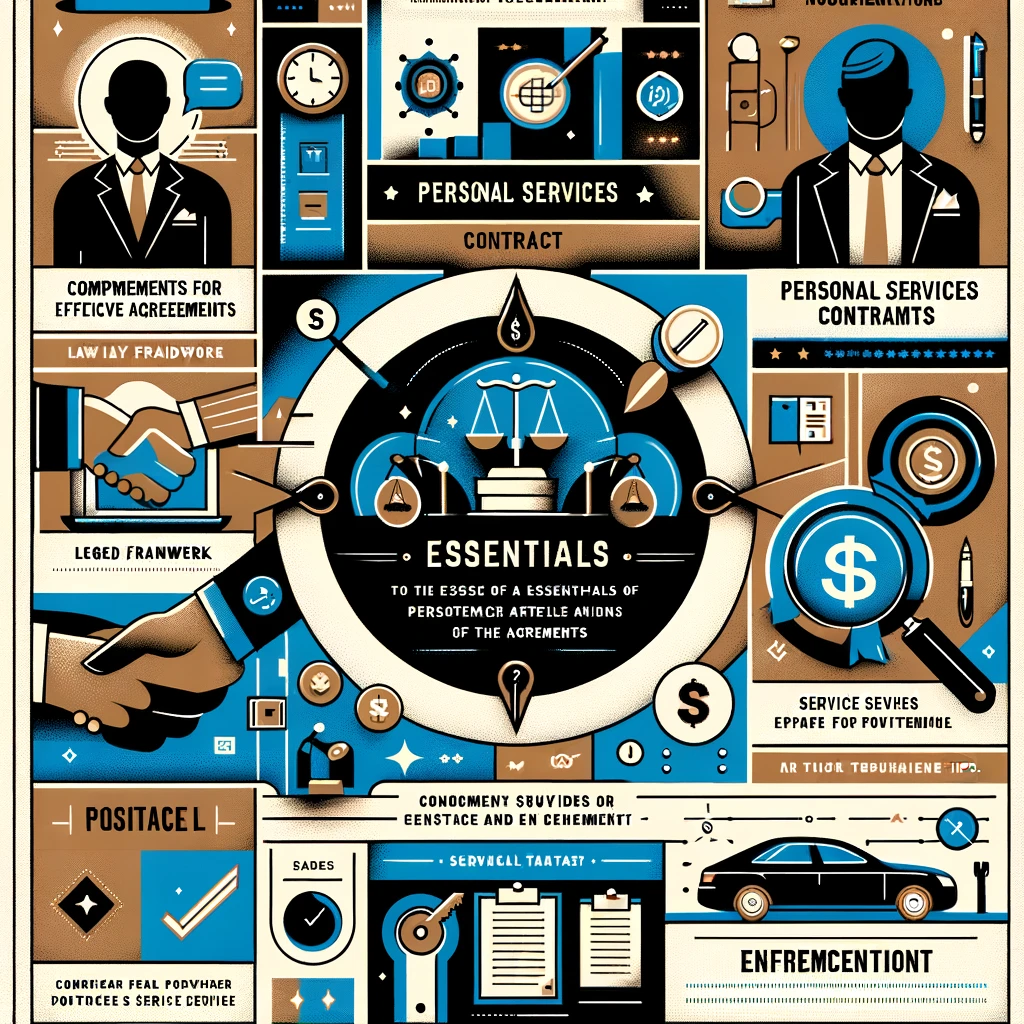Navigating Personal Services Contracts in Florida: A Comprehensive Guide
In Florida's vibrant economy, personal services contracts stand as crucial legal instruments that govern the relationships between service providers and their clients. Whether you're an independent contractor, a consultant, or a client looking to hire such services, understanding the intricacies of personal services contracts within the state is paramount. This guide delves deep into the essentials of drafting, negotiating, and enforcing personal services contracts in Florida, supplemented with .gov, .edu, and Wikipedia links for enhanced credibility and depth.

Understanding Personal Services Contracts
Personal services contracts are agreements wherein an individual or company agrees to provide services to another entity in exchange for compensation. These services can range from professional consultancy, artistic performance, personal care services, to any other form of non-tangible deliverables. In Florida, like in many jurisdictions, these contracts not only outline the scope of work and compensation but also include terms related to confidentiality, non-compete clauses, and termination conditions.
Legal Framework in Florida
Florida statutes and case law provide the legal foundation for personal services contracts, emphasizing the importance of clear terms, mutual consent, and consideration. The Florida Bar Association (FloridaBar.org) offers resources and guidelines that help in understanding the legal landscape surrounding these contracts. Additionally, the Florida Department of Business and Professional Regulation provides specific regulations for certain professions, which can influence how personal services contracts are structured.
Drafting Personal Services Contracts
Key Components
Scope of Work: Clearly define the services to be provided, including any deliverables or milestones.
Compensation and Payment Terms: Specify the rate, method, and schedule of payments.
Duration and Termination: Outline the contract's effective period and terms under which it can be terminated.
Confidentiality and Non-Disclosure: Incorporate clauses to protect any sensitive information exchanged during the contract period.
Dispute Resolution: Agree on mechanisms for resolving potential disputes, such as arbitration or litigation.
For drafting tips and templates, Cornell Law School’s Legal Information Institute is an invaluable resource, offering a wealth of legal definitions and contract principles.
Negotiating Personal Services Contracts
Effective negotiation is key to a successful personal services contract. Both parties should aim for a balanced agreement that fairly addresses the interests of the service provider and the client. Considerations include scope flexibility, fair compensation, and realistic timelines. Engaging in open communication and possibly seeking mediation for contentious points can lead to a more amicable and effective contract.
Enforcing Personal Services Contracts in Florida
Enforcement of personal services contracts involves legal proceedings when disputes arise. The Florida Courts system plays a crucial role in adjudicating breaches of contract, non-payment, and other issues. Both parties should maintain comprehensive documentation of all interactions, services rendered, and payments made as evidence in potential disputes.

Create & Review Your Contracts 10x Quality and Ease
Lawyer-level AI handles all your contract needs, with real lawyers providing safeguarding support

Practical Tips for Service Providers and Clients
For Service Providers:
Understand Your Rights and Obligations: Familiarize yourself with Florida's legal requirements for personal services contracts.
Document Everything: Keep detailed records of services provided, communication with clients, and payment receipts.
For Clients:
Vet Your Service Providers: Conduct due diligence on the service provider’s background, qualifications, and references.
Clear Communication: Ensure all expectations, from the scope of work to payment terms, are clearly communicated and understood.
Conclusion
Personal services contracts are vital in Florida’s diverse economy, enabling professionals to offer their services confidently and clients to receive them securely. By understanding the legal framework, adhering to best practices in drafting and negotiating, and preparing for enforcement, both service providers and clients can foster successful, mutually beneficial relationships. For further exploration, visiting authoritative sites like Wikipedia and educational resources provided by Florida's .gov and .edu websites can enhance your knowledge and ensure compliance with state-specific regulations.

